Willy Wonka and the Pornographic Lampoon of Charles II
The Libertine
(Laurence Dunmore, 2004) **1/2
Yet another film that founders on Aristotle's truism that no one's life is a story. This is even more pointless than most, since, based on this film, the accomplishments of John Wilmot, second Earl of Rochester, were
1. Taught Elizabeth Barry (who? exactly) how to act.
2. Wrote a pornographic play.
3. Died horribly from syphilis.
As a character, Wilmot is of even less interest, since he always chooses that which leads to his self-destruction. Other characters praise him as a great wit and poet, but for the former, there is no evidence, and for the latter, he is, at best, middling. Johnny Depp fills this shell, as best he can, with bits from Hunter S. Thompson, Jack Sparrow, and Willy Wonka. One thing this film gets right is that the past was unbelievably dirty with everyone and everything covered with soot, mud, and filth.
The list blog
I've come to the conclusion that posting the top 10 lists in the order that I see something new is frankly useless, so I'm going to be posting the whole enchilada from the Kinetoscope to now starting this instant. Check back often.
Top films from the past 2005 (6)
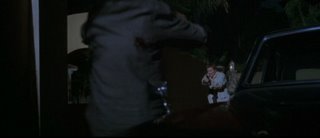
6. Spartan (David Mamet, 2004)
The new test of believability of cinematic Special Forces-type badasses is do they act like Val Kilmer in Spartan.
5. Chinatown (Roman Polanski, 1974)
Nothing really to add to what I wrote
here. Though to respond to msic, I don't think that having the "white male power structure" in on it is really revisionist. I seem to remember that was the set-up of The Big Heat, for example.
4. Awara (Raj Kapoor, 1951)
Is Raj Kapoor in the canon yet? If not, shame on us all.
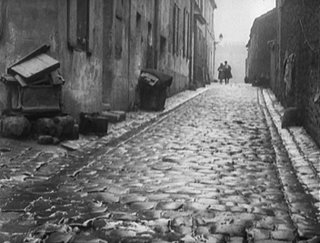
3. Menilmontant (Dimitri Kirsanoff, 1926)
Another great director who has fallen through the cracks. He seems hard to classify. Here we have Soviet montage, documentary depictions of Paris streets, and silent avant-garde poetics synthesized into something totally different from anyone else of the time.

2. Before Sunrise (Richard Linklater, 1995)
I knew this was great from the opening use of Purcell. Seemingly about everything. It's a film about two young people that remembers that they and we are mortal.
And now for the winner...
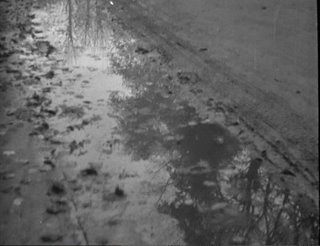
1. Brumes d'automne (Dimitri Kirsanoff, 1929)
A truly sensuous film in that it really feels like sitting inside by warm fire and then going out into the damp of a wet autumn day.
Top films from the past 2005 (5): a digression
7. Manhatta (Paul Strand and Charles Sheeler, 1921)
Some savvy soul at Kino paired this early city symphony after Whitman with the music from the previous video version of Metropolis. The influence of this short film on Lang's sf epic now seems to me to be immense.

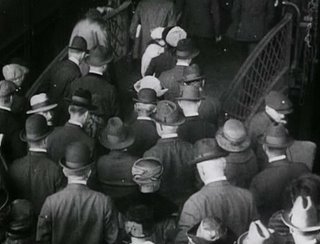
The arrival of the workers.
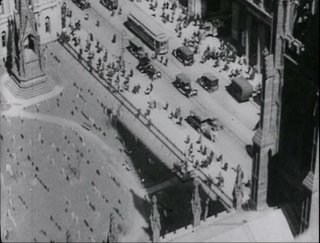
The old church in the modern city.
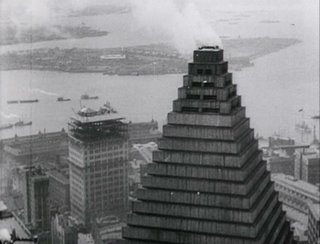
Babel
and the skyscraper.
These next two are a bit more tenuous.

Manhatta has a sequence of steam rising from rooftops with clouds of vapor enveloping the camera, reminiscent of the shot of the steam whistle in Metropolis.
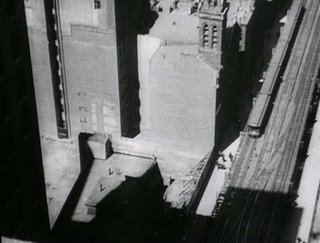
This shot reminds me of the aerial views of Metropolis' elevated roads. (I seem to remember that Metropolis also had an el.)
Apparently the story of Metropolis being inspired by Lang seeing the New York skyline is as truthful as his tale of fleeing Nazi Germany right after Goebbels offered him control of German film. But I think he did see the skyscrapers of New York. He saw them in Manhatta.










